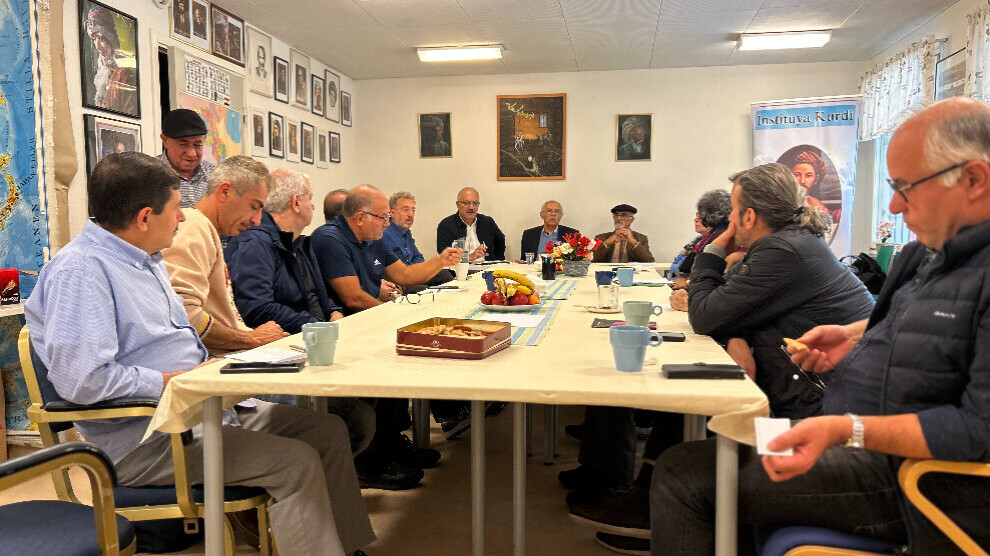Seminar on ‘Kurdistan and occupation’ in Stockholm
A seminar on the history of Kurdistan, occupation and annihilation attempts was held at the Kurdish Institute in Stockholm.
A seminar on the history of Kurdistan, occupation and annihilation attempts was held at the Kurdish Institute in Stockholm.

The Kurdish Institute in Stockholm, Sweden, organised a seminar on ‘The history of Kurdistan in the last 100 years, new occupation attempts in the historical process, new extermination attempts against the Kurdistan revolution and its pioneers’. The seminar was attended by Kurdish writers, historians and officials from institutions.
In his speech at the seminar, author Kamiran Simo Hedilî talked about the establishment process of the Turkish state, the establishment of the state on monist and extermination principles, as well the Kurdish uprisings and the national resistance of pioneering leaders such as Şêx Seîd, Seyît Riza, Xalidê Cibirî and Nûrî Dêrsimî.
Hedilî stated the following: “The occupying forces in Kurdistan, besides banning everything related to Kurds and Kurdistan and carrying out a physical annihilation process, have always continued their attempts to suffocate Kurdish uprisings by developing a spiral of betrayal against Kurdish pioneers from within. The state has always wanted to create Kasıms who betrayed Şêx Seîd and Raybers who betrayed Seyit Rıza. The last uprising in this whole historical process is the PKK. Mr Öcalan, who is accepted as a leader by millions of people in 4 parts of Kurdistan, was taken prisoner by the system through an international conspiracy. In today's process, Mr Öcalan, who still leads the ongoing uprising in 4 parts of Kurdistan with his ideas and presence, has fulfilled his leadership mission properly. I believe that Kurdistan will be liberated in the event of the creation of national unity through the resistance and leadership of the Kurdish people.”
Kurdish instructor Behzad Pirmûsa briefly mentioned the history of the uprising in Southern Kurdistan in the past 100 years and drew attention to the betrayal of the Barzani Family in the uprisings against the occupying states in Kurdistan such as Iran and Iraq.
Behzad Pirmûsa stated, ‘In the uprisings that have continued from Şêx Mehmûd Berzancîs to the present day, Kurdish national unity has come close to being established, but this process has not been completed. However, all Kurdish pioneers in the uprisings, regardless of differences in belief or political thought, have always seen the establishment of Kurdish national unity as a vital goal. On the other hand, from the Ottomans to the Iraqi state, countless exterminations and massacres were carried out against the Kurdish people. These continue even today. However, at the end of all the uprisings, the Kurdish people are closer to national unity than ever before, even though they had to put up great resistance and even though the occupiers are trying to extract new betrayers from the Kurdish people. In the 4 parts of Kurdistan, the Kurds have now succeeded in having the vision of an integrated Kurdistan.”
Writer and historian Osman Elxanizade talked about the uprisings that developed in Rojhilat (Eastern Kurdistan) against the Iranian state and the Kurdish pioneers.